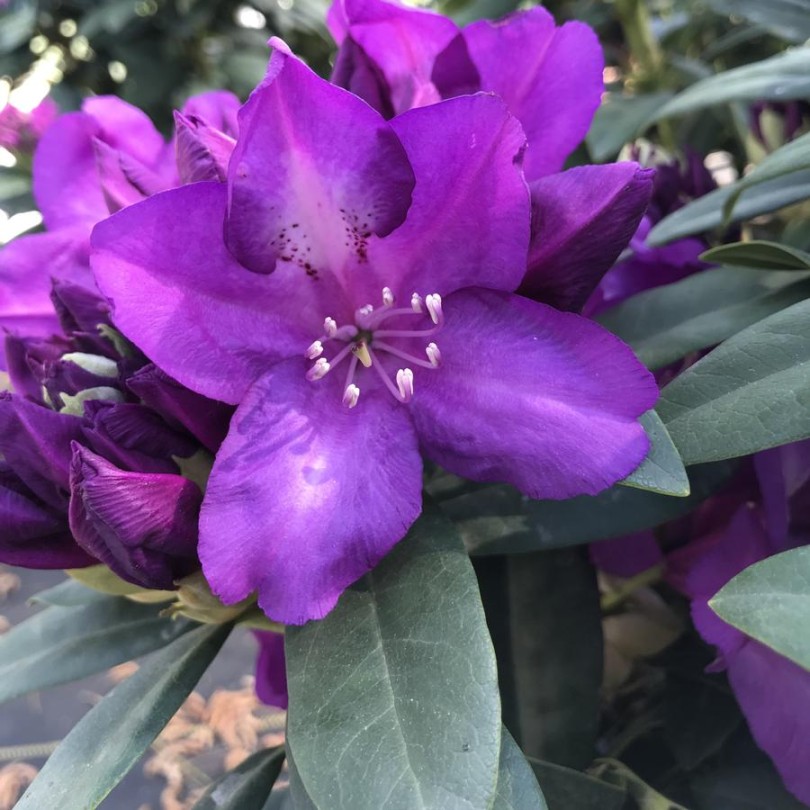Purple Passion Rhododendron: A Vibrant Addition to Your Garden
The Purple Passion Rhododendron is a stunning flowering shrub renowned for its vibrant purple blooms and lush foliage. This popular garden plant is a favorite among gardeners due to its beauty and relatively low maintenance requirements.
The Purple Passion Rhododendron is a deciduous shrub that typically grows to a height of 4-6 feet and a width of 4-5 feet. Its large, glossy leaves are a deep green color and provide a beautiful backdrop for the plant’s showy flowers. The flowers are a deep purple color and bloom in late spring, adding a burst of color to any garden.
When planting a Purple Passion Rhododendron, it is important to choose a location that receives dappled shade. These plants prefer acidic soil that is well-drained. It is also important to plant the rhododendron at the same depth it was in its original container.
The Purple Passion Rhododendron is a relatively low-maintenance plant. However, there are a few key care tips to keep in mind:
Watering: Water your rhododendron regularly, especially during dry periods.
The Purple Passion Rhododendron is susceptible to a few common pests and diseases, including:
Pests: Aphids, spider mites, and scale insects can infest rhododendrons.
To prevent and control pests and diseases, it is important to practice good garden hygiene and monitor your plants regularly. If you notice any signs of infestation or disease, take immediate action to treat the problem.
The Purple Passion Rhododendron is a beautiful and versatile plant that can be used in a variety of garden settings. By following a few simple care tips, you can enjoy the beauty of this stunning shrub for many years to come.

